When we were little, my mother took us at least once a week–more frequently in the summer–to the public library on Connecticut Avenue in Northwest D.C. We’d traipse in behind her, all five of us, and then immediately disperse into the never-quite-cool, slightly-sticky rows of books that smelled of scotch tape, something stale I could never quite put my finger on, and magic. The children’s selection at this particular library was expansive, and I ate my way through everything, becoming especially voracious once I hit the second or third grade: the Ramona books, the Boxcar Children, the Bobsey Twins, The Babysitter’s Club, Nancy Drew, Madeleine L’Engle, Frances Hodgson Burnett. I wouldn’t characterize my mother as strict so much as structured: there were rules, parameters, ways of doing things that we followed obediently and unquestioningly–but book-borrowing was one area where we were permitted to go wild, renting as many as we’d like and as often as we wanted. It always struck me as deliciously opulent: there were no rules; I could read whatever I wanted, whenever I wanted, even books that seemed too long or too old for me. (I probably read some of the Judy Blume books a little too early — I was petrified for years at the thought of getting my period and having to wear the belt contraption Blume described in one of her books, only to later learn that things had changed since the 1970s.) Still, my mother would nod her head and let me add it to the canvas tote bag over her shoulder.
And the day I earned my own sky-blue junior library card and was asked, rather unceremoniously, by the gruff librarian to “sign your name here, please” with a perfunctory tap-tap-tap on the little white box on the back of the card, I felt like a grown up. It was the first time in my life my signature had mattered, and I’d been rehearsing my cursive for just such an occasion for what felt like eons. But, more importantly, procuring my own card made me feel as if the books were my own, the book-borrowing my own endeavor, all of it my own little habit in my own little lane.
Back home, during those languid and lovely afternoons of summer vacation, we had what my mother termed “Quiet Time” from 1-3 P.M. every day. We could nap, we could read, we could draw, but it was not a time for conversation or play. So I read. We all read. My sister Elizabeth would get so drawn into what she was reading that my mother could call her for 10 minutes straight without her even noticing, and my mother would find her, blissfully unaware, curled up in the cabinet of a built-in bookshelf in her bedroom.
Through these gestures–license to read whatever we wanted, our own library cards, and a designated space in our daily routines to sit down and settle into a book–and through her example–my mother was always with a book at her side, whether sitting in the carpool pick-up line or waiting for us in the dentist’s office–she instilled in us a deep love of books, of the sequestration of reading. So much so that three of us pursued degrees in Literature, a fourth specialized in early childhood literacy, and it’s rare to find a familial conversation that does not touch, in some way, on what we’re reading or what we want to read. Long chains of emails dedicated to books loop through our inboxes regularly. And there’s my father, routinely offering to place “a big Amazon order with whatever books you want,” nudging us to continue to read regularly, widely, thoughtfully.
I have written about what good books mean to me. I have shared a list of some of my most cherished books of all time. I have stated my aspirations to raise a bookworm myself. I have even fantasized about my dream reading nook. But today I thought I’d more formally kick off a Book Club series with reflections on what I’ve read each month and what I intend to read next in the hopes of creating another, more virtual reading nook–with you in it, too.
I’m starting this series alongside Meghan Wainwright, a lovely lady I met at a blogger networking event a month ago. We decided to read The Party and swap notes. Below, you’ll find my thoughts on this and my other August reads. Note that I’m not normally quite as speedy a reader; minimagpie has been going through a growth spurt and nursing a lot, which has afforded me a ton of time to read…
Book Club Pick No. 1: The Party by Robyn Harding
Three stars. A gritty story about the dissolution of a well-to-do San Francisco family following the harrowing aftermath of a party thrown by their teenage daughter. It’s a quick read whose primary merit, in my view, is the sliding scale of blame the author artfully casts around the characters. It’s challenging to point the finger at anyone in this complex pastiche of wrong-doing–so we’re left pointing the finger at everyone, or no one, or wondering why the hell we so compulsively ferret out “the bad guy” in these narratives when it’s quite possible that there’s a lot of bad in all of us. Interesting questions of culpability and the reader’s complicity in those determinations.
Book Club Pick No. 2: But What If We’re Wrong by Chuck Klosterman
3.5 stars. I wrote about this one in some detail already while musing over the ideal reading nook for a bookworm like myself, where I wrote: “Klosterman takes an intentionally contrarian view on, well, everything, boldly albeit humbly egging on the likes of Neil deGrasse Tyson…and experts on everything from rock music to American football, always asking them: “But what if…?” His basic thesis is that for centuries at a time, humanity has held specific sets of perspectives that are considered “fact” or at least incontrovertibly true in a more vague social consensus kind of way, i.e., “the world is flat” or “our is the only universe” or “Moby Dick is an unimpeachably good book,” and that these assumptions are eventually found to be inaccurate or out of vogue and are in turn discarded for some other set of perspectives — “the world is actually round,” “we’re one universe in a multiverse,” and “actually, Junot Diaz’s This Is How You Lose Her is the greatest American novel.” (In fact, that last opinion is one I can get behind.)
Klosterman asks: what are those assumptions that we hold right now that will eventually be debunked or scoffed at? He proposes such outlandish thoughts as: maybe we are all living in a simulated reality and some teenager is actually controlling the conditions of the world we perceive to be reality; maybe American football will die as a national pastime within our lifetime; maybe the sitcom Roseanne will eventually be considered the greatest representation of American culture in the 90s. He has an affable way with words — winking and self-deprecating and occasionally irreverent, sort of the literary equivalent of a Rupert Everett or Hugh Grant at a dinner party — and I’ve learned a lot from the book (like, a lot a lot, and about things I should know more about, i.e., quantum physics, though in the broadest brush-stroke imaginable), but the book’s principle merit…is the prototype of the author’s persistent curiosity about the world around him. It’s nudged me to think more critically about, well, everything.”
Book Club Pick No. 3: The Singles Game by Lauren Weisberger
Two stars. I alternate between “heavier fare” and what I’d categorize as pop lit / chick lit — sometimes I need a mental vacation, and I also often find myself steeped in social critique afterwards as I reflect on how these popcorn books represent womanhood, relationships, motherhood, marriage, etc. I needed something ultra-lite after Klosterman’s brain teaser of a book, and The Singles Game, by the author of The Devil Wears Prada, fit the bill. It was dull, over-long, and rather over-focused on descriptions of her hideous-sounding tennis outfits (lots of rhinestones?) In fact, I can’t recall, a just few short weeks later, what the central tension of the book was besides rather generic grief over a fraying relationship with her father. I’d stick with these lovely beach reads if you’re looking for something easy and fun.
Book Club Pick No. 4: Just Kids by Patti Smith
Three stars. I had to check out Just Kids after reading an exquisite essay of hers I came across in The New Yorker. Smith is a talented writer–straight-forward, unfussy, but poetic in her own way–and the quality of her writing persists here. That said, this book was exhausting and I nearly had to put it down about two thirds of the way through. It was an endless chronicle of her nights and days as a bohemian artist in New York City in the 70s and 80s, and the pages were so littered with the name dropping of artists I felt like I should know but did not that I started to feel as though I were sitting at the cool kids’ table with no license to be there. Her writing implied: “Oh, look at all these cool people who knew me and loved me; I was at the center of the most important artistic revolution of our time.” Sigh. At some point, too, her noncomformist artistic gestures (burning sage, redecorating her apartment with trash on the street, offering friends oddball talismans, etc) became a little too self-aware and cutes-y for my taste.
However.
And this is a Big However.
The book is also heart-breaking in that it reads like a long love letter to the love of her life, the artist Robert Mapplethorpe, who died at a young age. Her description of their first few encounters reads fresh, relatable, poignant to anyone who has ever fallen head over heels for someone else.
Book Club Pick No. 5: The Light We Lost by Jill Santopolo
Three stars. We read The Light We Lost in one of my book clubs and came to the consensus that though it was an enjoyable, easy read with an interesting narrative structure (narrated and commented upon in the present tense, as though being spoken aloud to someone else), Santopolo took some lavish liberties with trying to create tensions in the novel where there weren’t any organically arising. It nearly felt as though the editor said: “Make the husband seem a little meaner to create more contrast” and Santopolo had gone back through the book to sprinkle in a handful of misogynistic comments. I also felt that some portions of the book read like an overwrought YA novel blended with a trashy romance — some of the swoony phrasings were woefully over the top.
Book Club Pick No. 6: Fitness Junkie by Lucy Sykes and Jo Piazza
Four stars. Fitness Junkie was a deliciously biting social commentary wearing a beach read’s clothing. In this sense, and I realize I may regret forging this likeness, it sort of felt like a modern day Evelyn Waugh (have you read Scoop? It’s a darkly funny satire on the quest for “the big scoop” in journalism) in its sardonic take on the times. Sykes and Piazza poke fun at the health and fitness fads to which so many of us succumb — first it’s no fat, then it’s drinking coffee with fat melted into it, then it’s no meat, then it’s all meat, etc, etc. Several girlfriends of mine remarked: “Oh my God, I’m so guilty of being swindled into these things.” The ending reads a bit thin (“I’ll just be the weight I want to be and be happy!”), but the book does enough to remind us to think a bit more critically before jumping on the next weird trend. (Ahem, Goop.)
Book Club Pick No. 7: Blue Nights by Joan Didion
Five stars. Quite simply: perfect. Blue Nights is a heart ache, a lump in the throat. In it, Didion reflects on the life — and early, untimely, tragic death — of her beloved adopted daughter, Quintana Roo. She weaves and repeats various fragments of memories throughout the book, creating, just as she did in her equally astounding Year of Magical Thinking, a haze of recollections that is striking in its verisimilitude to the experience of memory. Among these incantatory repetitions: “When we talk about mortality, we’re talking about our children,” by which she means the un-ending fear of death parents have for their children. Absolutely gorgeous.
Book Club Pick No. 8: Here’s to Us by Elin Hilderbrand
3.5 stars. I’d heard quite a bit about Hilderbrand and her collection of Nantucket-based novels, but Here’s to Us was my first encounter with her, and I enjoyed it. She’s a solid writer with an eye for detail and a knack for portraying a very specific sense of place. In Here’s to Us, Hilderbrand tells the story (stories?) of the three wives and several children of a celebrity chef who has just died and left his wives equal shares of his nearly-foreclosed-upon beach house in Nantucket. Emotional fireworks follow, and we watch as relationships build and unravel around this central point of loss.
Book Club Pick No. 9: The Rules Do Not Apply by Ariel Levy
Four stars. This book. Oh man. I was so depressed after reading it (in one sitting, more or less) that I had to watch I Love Lucy reruns for two nights in a row just to quiet my mind and drain it of the dark experiences Levy shares with us in this memoir. Levy, an esteemed journalist, has fairly loud, straight-forward presence in this work, and she tells her story of loss without flinching. And man oh man, what a story of loss it is — to quote from the book jacket: “When Ariel Levy left for a reporting trip to Mongolia in 2012, she was pregnant, married, financially secure, and successful on her own terms. A month later, none of that was true.” I felt especially heartbroken over her descriptions of pregnancy, and her brief experience of motherhood: “I started talking to the baby in my head instead of to myself. Even if you are not Robinson Crusoe in a solitary fort, as a human being, you walk this world by yourself. But when you are pregnant, you are ever alone.” Later: “That was something I never saw clearly before motherhood flashed in front of my eyes, impairing and intensifying my vision. Nothing has looked entirely the same since.” And: “I had a longing–ferocious, primal, limitless, crazed–for the only person I had ever made.” Absolutely heart-wrenching, but so damn true.
This book is not for the faint of heart.
My September Book Club Reading List
Startup by Doree Shafrir, a longtime Buzzfeed journalist, all about the over-inflated world of start-ups, venture funding, and the people that populate it.
Anything Is Possible by Elizabeth Strout. Recommended many times over by loved ones and my lovely readers, this series of short stories is all about love and loss as seen through the eyes of a cast of characters in a small town.
Shakespeare’s Kitchen by Lore Segal. A set of interrelated stories, several of which originally appeared in The New Yorker, focused on the relationships of professor Ilka Weisz, a recent transplant to a think tank in Connecticut.
Upstream by Mary Oliver. A series of essays referenced in one of my favorite books from July, Rebecca Solnit’s A Field Guide to Getting Lost. Oliver is purported to be an exquisite writer.
The Girls by Emma Cline, about a Northern California girl attracted into a cult in the 1960s. Very good reviews.

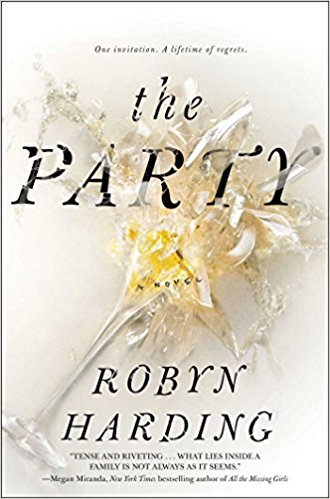
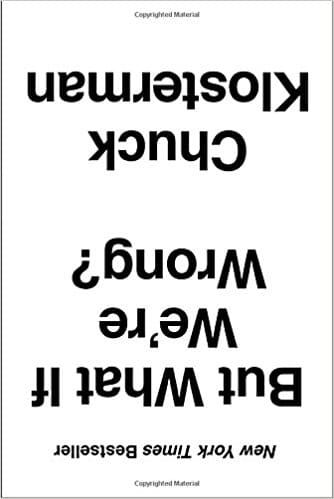
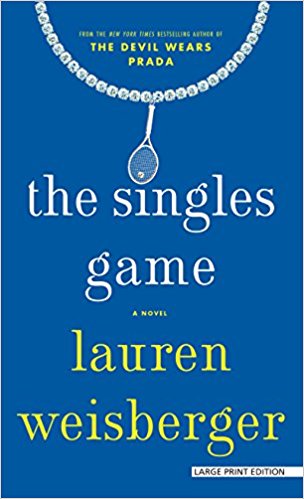
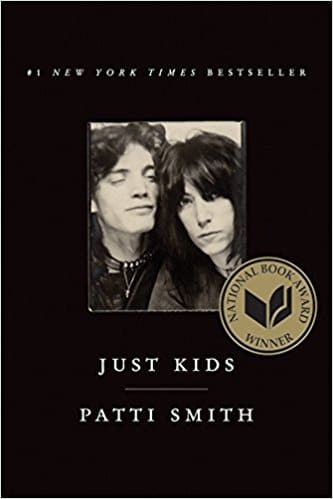
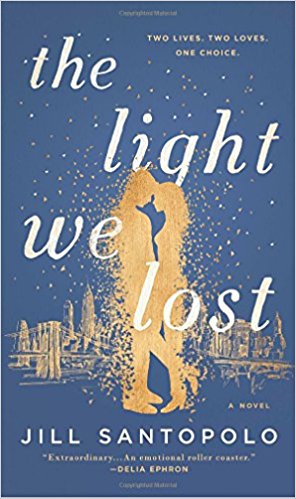
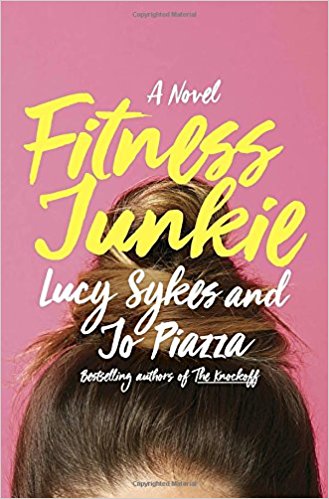
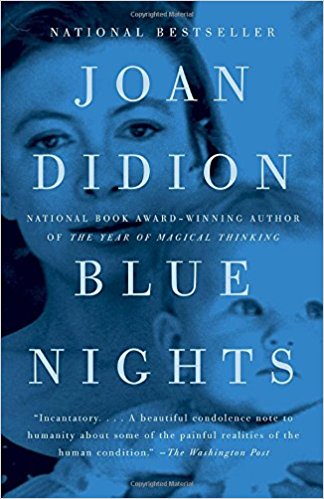
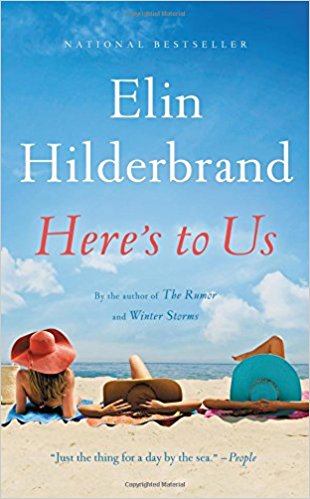
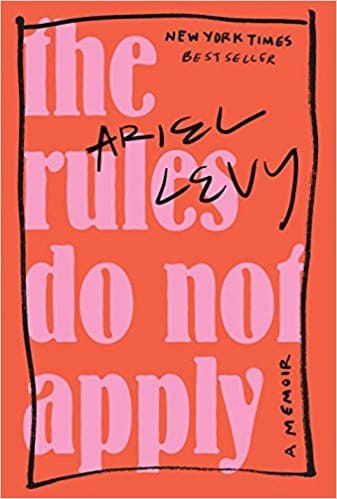

Seconding this — I don’t have a copy (yet) but SO MANY of my publishing colleagues have told me that it’s not to be missed. Would love to hear your take on it!
Yessss. I love that you have started this book club! I have a copy of The Girls that I haven’t yet read, so maybe I’ll make that my next one … though I just picked up a copy of Claire Messud’s The Burning Girl and really, really want to read it (I loved The Emperor’s Children, even though I read it over a decade ago!).
I also really want to get/read The Rules Do Not Apply! I’m glad you think it is worth it, albeit a bit heartwrenching.
Thank you for incorporating so much content about books on your blog! I, for one, absolutely love it.
I have a feeling, MK, you are going to really appreciated The Rules Do Not Apply — incisive, frank, gut-wrenching as it is. I am REALLY REALLY liking The Girls. I’m only 43% done (#thankyoukindle), but I already told my sister that I think she may be one of the most talented writers I’ve come across in the last five years. It’s also very haunting and very creepy and I have had to alternate it with lighter fare or I can’t sleep. Read and share your thoughts!!
Ahhh! The Girls sounds so good — starting it tonight. xx
[…] so happy that Jen has started a more formal book club series… we have similar taste in books and she features so many that I’ve either read or want […]
So wonderful! I just downloaded the startup book based on you listing it– Silicon Valley is one of my favorite shows, and I’m hoping it’s similarly campy and light.
Thank you for letting me know I CANNOT read the rules and didion book– I couldn’t take it!!
If you wouldn’t mind I’d like to request for you to say a prayer for us in Florida in light of Irma (I’ll put it here in hopes many more people will read it and pray for us)
Our Father in Heaven through the intercession of Our Lady of Prompt Succor, spare us during this Hurricane season from all harm. Protect us and our homes from all disasters of nature. Our Lady of Prompt Succor, hasten to help us. We ask this through Christ our Lord. Amen.
Oh yes, Bunny, we are thinking of and praying for everyone in Florida! Please write to let us know you’re safe and sound. xo
I’m dying for you to read The Hate U Give by Angie Thomas and tell us your thoughts. I just started it and I really can’t put it down. There is so much to say but i’ll leave it at this: 7 chapters in it is heart breaking and topical…a book that I can already tell everyone should read.
Wow — thanks for this stirring book rec. I am super intrigued after this note, and I hadn’t heard of it before! Will definitely add to my list. Thank you!
Oh my gosh so much to say here. The Rules Do Not Apply gutted me as well. It was so so sad. Gosh I am getting sad just thinking about it.
I read The Singles Game a while back and totally agree. I love the author when I want fluff, but it fell really short (and I loved your comment about her outfit – totally agree!!!)
I adored The Light We Lost – I think, because I can relate so much… I’ve dated guys like each of them and found it really haunting/slightly cautionary (i.e. stay away from the Gabes of the world!!!)
Fitness Junkie was 100% totally the perfect fluff book. I loved it! And it made me laugh as I do feel that my circle of girlfriends and I have been swindled into quite a few of these trends (though I don’t mind… better to do something like that with a friend than spend $50 on an overpriced brunch!)
Given that you and your husband run a tech company I think you’ll get a kick out of Startup (it’s on my reading list this month!!) I thought it was well done and while not perfect, having worked in that world, I really enjoyed it. I will be curious on your take on The Girls. I liked it but didn’t love it. It’s verrrrry creepy… haunting!
Whew – what a marathon comment! Should have just emailed you! I hope we meet someday, we have very similar taste in both clothing and books! 😉 xx
That’s EXACTLY the right verb to describe Levy’s book — it “guts” you. Something visceral, physical, primeval even? I don’t know, but it was heart-wrenching and gut-wrenching and I’ve not been able to pass a day without thinking about it. There were so many parts that I could barely read.
But, more generally — sounds like we are definitely on the same wavelength with regards to our book preferences and THANK YOU for writing your thoughts here, and on your blog, too, which I continue to obsess over. I DID already finish Startup per your recommendation (will be curious to hear your thoughts in more detail!), and would love to continue to read alongside you. xoxo
I’ve read The Singles Game twice because I forgot I had read it! I didn’t remember the plot points the second read through. I love tennis, and it was a fun quick read, but clearly not something that stuck with me.
My brothers are significantly older than I am, and Chuck Klosterman’s books were a huge bonding point for us. I started reading Klosterman in high school (#edgy), around the time they started reading him as adults. My dad even started reading Klosterman so he didn’t feel left out! Am anxiously awaiting my borrowed copy of the newest.
If your childhood was spent at the Cleveland Park library, I regret to tell you the city tore it down! A new library is being built in it’s place. Makes me a little sad each time I walk by it.
I love the book club list. Great post!
#Veryedgy and #veryimpressed with a high schooler reading Klosterman. Also, don’t you love how books can be a tie that binds? A way to connect with people of different ages, backgrounds, etc? It’s always sort of miraculous to me when I realize how similar so many of us actually are, how we can have such parallel reactions to the same piece of text when there is so much to differentiate us…
ALSO, had no idea about the CP Library! We actually went to the one up close to Chevy Chase Circle — not sure why, come to think of it, because we lived on Tilden Street less than a mile from the CP Library. Maybe because it had a better parking lot? My mom probably had some practical reason for it…do you live in Cleveland Park? Why would they tear that one down — it was pretty new anyway!